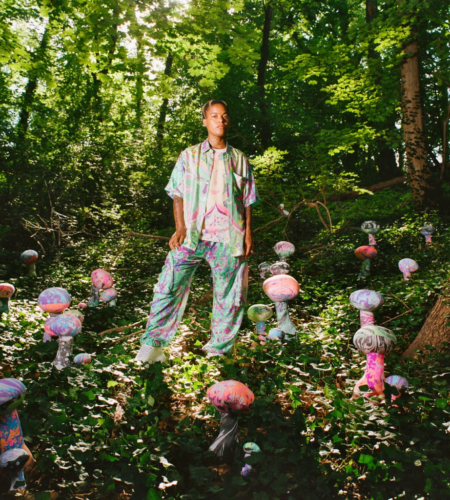Fashion has always mirrored cultural trends, but today it also reflects our growing awareness of environmental and ethical issues. Millennials, more than any previous generation, are driving the shift toward a more sustainable and ethical fashion industry. Their influence is not only reshaping consumer behavior but also prompting significant changes in how fashion brands operate and innovate.
Millennials’ Green Revolution
Millennials, known for their social consciousness and tech-savviness, are increasingly choosing brands that align with their values. This generation is more informed and concerned about the environmental impact of their purchases and the ethical practices of the companies they support. According to a 2023 report by Nielsen, 73% of Millennials are willing to pay more for sustainable products, highlighting their commitment to eco-friendly practices.
This shift in consumer behavior has encouraged brands to rethink their strategies and adopt more sustainable practices. From reducing waste to using eco-friendly materials, the fashion industry is undergoing a green revolution driven by Millennial demand.

Innovative Eco-Friendly Brands Making Waves
Several innovative fashion brands are leading this sustainable movement. Here are a few standout examples:
1. Reformation
Reformation has been a trailblazer in eco-friendly fashion since its inception. Known for its stylish and sustainable clothing, Reformation uses recycled materials, organic cotton, and eco-friendly dyes. The brand’s commitment to transparency, with detailed information about the environmental impact of each garment, resonates with Millennials who value honesty and responsibility.
2. Patagonia
Patagonia is a pioneer in sustainable fashion with a long-standing commitment to environmental activism. The brand’s use of recycled materials, fair labor practices, and dedication to reducing its carbon footprint has earned it a loyal Millennial following. Patagonia’s “Worn Wear” program, which promotes the repair and resale of used clothing, reflects its commitment to reducing waste and extending the lifecycle of its products.
Stella McCartney, a leader in luxury eco-fashion, integrates sustainability into every aspect of her brand. McCartney’s collections use organic cotton, recycled materials, and innovative fabrics like mushroom leather. Her focus on cruelty-free fashion and environmental responsibility has made her a favorite among eco-conscious Millennials.
4. Allbirds
Allbirds, known for its comfortable and eco-friendly footwear, has quickly become a Millennial favorite. The brand’s use of natural materials like merino wool and eucalyptus fibers, combined with its commitment to carbon neutrality, aligns perfectly with Millennial values. Allbirds’ dedication to sustainability extends to its packaging and supply chain practices, setting a high standard for other brands.

The Impact on the Fashion Industry
The rise of eco-friendly fashion brands is reshaping the industry in several ways:
1. Increased Transparency and Accountability
Millennials demand transparency and accountability from the brands they support. This demand is pushing companies to provide clear information about their supply chains, production processes, and environmental impact. Brands are now more accountable for their practices, leading to improved standards across the industry.
2. Innovation in Sustainable Materials
The push for sustainability is driving innovation in materials and production techniques. Brands are exploring new fabrics made from recycled plastics, organic fibers, and even biodegradable materials. This innovation is not only reducing the environmental impact of fashion but also opening up new possibilities for creative design.
3. The Rise of Circular Fashion
Circular fashion, which focuses on designing products with their entire lifecycle in mind, is gaining traction. Brands are adopting practices like recycling, upcycling, and designing for durability. This shift toward a circular economy is helping to reduce waste and promote a more sustainable approach to fashion consumption.
4. Increased Collaboration and Advocacy
Millennial-driven demand for sustainability is fostering collaboration between brands, non-profits, and activists. Many fashion companies are partnering with organizations to support environmental causes, promote fair labor practices, and advocate for policy changes. This collaborative approach is amplifying the impact of sustainable fashion initiatives.
Conclusion
Millennials are leading a fashion revolution, driving demand for sustainable and ethical choices. Their preference for eco-friendly brands represents a significant shift in consumer behavior that is reshaping the industry. As more brands adopt sustainable practices and innovate with eco-friendly materials, the fashion world is evolving to meet the expectations of a more conscientious and informed consumer base. For Millennials, fashion is no longer just about style—it’s about making a positive impact on the world.


